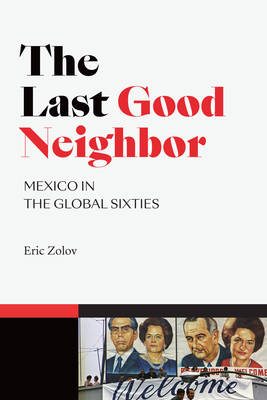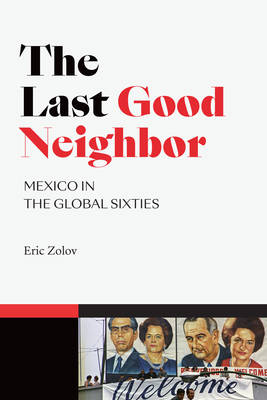
Je cadeautjes zeker op tijd in huis hebben voor de feestdagen? Kom langs in onze winkels en vind het perfecte geschenk!
- Afhalen na 1 uur in een winkel met voorraad
- Gratis thuislevering in België vanaf € 30
- Ruim aanbod met 7 miljoen producten
Je cadeautjes zeker op tijd in huis hebben voor de feestdagen? Kom langs in onze winkels en vind het perfecte geschenk!
- Afhalen na 1 uur in een winkel met voorraad
- Gratis thuislevering in België vanaf € 30
- Ruim aanbod met 7 miljoen producten
Zoeken
Omschrijving
In The Last Good Neighbor Eric Zolov presents a revisionist account of Mexican domestic politics and international relations during the long 1960s, tracing how Mexico emerged from the shadow of FDR's Good Neighbor policy to become a geopolitical player in its own right during the Cold War. Zolov shows how President Adolfo López Mateos (1958-1964) leveraged Mexico's historical ties with the United States while harnessing the left's passionate calls for solidarity with developing nations in a bold attempt to alter the course of global politics. During this period, Mexico forged relationships with the Soviet Bloc, took positions at odds with US interests, and entered the scene of Third World internationalism. Drawing on archival research from Mexico, the United States, and Britain, Zolov gives a broad perspective on the multitudinous, transnational forces that shaped Mexican political culture in ways that challenge standard histories of the period.
Specificaties
Betrokkenen
- Auteur(s):
- Uitgeverij:
Inhoud
- Aantal bladzijden:
- 424
- Taal:
- Engels
- Reeks:
Eigenschappen
- Productcode (EAN):
- 9781478006206
- Verschijningsdatum:
- 15/05/2020
- Uitvoering:
- Paperback
- Formaat:
- Trade paperback (VS)
- Afmetingen:
- 150 mm x 229 mm
- Gewicht:
- 566 g

Alleen bij Standaard Boekhandel
+ 121 punten op je klantenkaart van Standaard Boekhandel
Beoordelingen
We publiceren alleen reviews die voldoen aan de voorwaarden voor reviews. Bekijk onze voorwaarden voor reviews.









